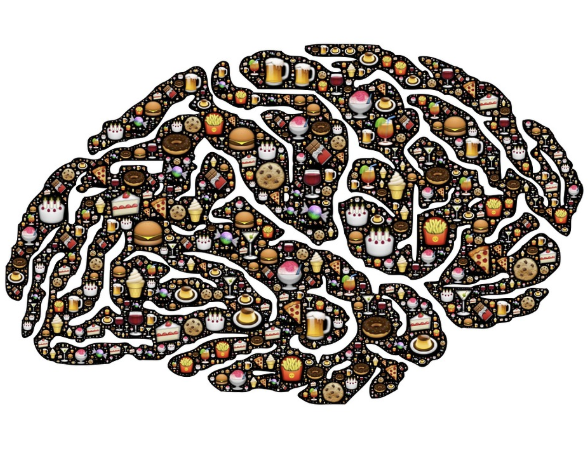


As a society, we are used to the idea that we feed our bodies, and that our diet shapes our waistlines. But many of us forget that the same diet also feeds our brains and that the food we give our brains shapes our thoughts and actions. I invested many years formally studying neuroscience and neurology, and have spent many more years as a scientist in those fields. Back when I started, most of my time was spent with medical journals. But 15 years into my research, much of my time is spent with cookbooks.
These books are essential to contemporary brain science. The recipes become food, and that food shapes our brains just as surely as it builds our bodies. Day after day, the foods we eat are broken down into nutrients, taken into the bloodstream and carried up into the brain. Once there, they replenish depleted storage, activate cellular reactions and become the very fabric of our brains.
Find Out It’s Not Just in the Genes: the Foods that can Help and Harm Your Brain
The brain is the hungriest organ in the body, consuming more than 20% of your body’s total energy haul. At the same time, our brain cells are irreplaceable. Unlike the rest of the body, where cells are continuously replaced, the vast majority of brain cells stay with us for our entire lives which means they are in need of extra care and nourishment.
Next-generation medical imaging and genomic sequencing studies, including work from my lab at the Alzheimers Prevention Clinic at Weill Cornell Medical College, New York, have helped us understand that some foods play a neuroprotective role, shielding the brain from harm. Its no surprise that, conversely, other foods are harmful to the brain, slowing us down and increasing the risk of cognitive decline. So, what does this mean for your daily menu in terms of optimizing for brain health? It means lots of the following:
Fatty acids
A specific kind of fats called polyunsaturated long-chain fatty acids, such as the famous omega-3s. Fatty fish, such as salmon, mackerel, anchovies, and sardines, is the best natural source of the only kind of fat the brain needs throughout a lifetime. Where fish isn’t an option, flax and chia seeds are good alternatives.
Glucose
A specific kind of carbohydrate called glucose. Glucose is the only energy source for the brain, so its crucial that the brain gets enough of it. Foods that are naturally rich in glucose and that at the same time contain enough fiber to stabilize your blood-sugar levels are beetroot, kiwi fruit, whole grains, sweet potatoes, onions, and spring onions. Raw honey, maple syrup, and coconut sugar are also good sources.
Vitamins and minerals
All sorts of vitamins and minerals, especially those with antioxidant effects such as vitamin A, vitamin C, vitamin E, and selenium but also iron, copper, and zinc. Fruit and vegetables are the best natural source of these: go for berries, oranges, grapefruit, and apples, which are sweet but have a low glycemic index. Leafy green or cruciferous vegetables (broccoli, cabbage, spinach, kale, dandelion greens), as well as other vegetables such as onions, carrots, tomatoes or squash, are also full of vitamins, minerals, aren’t and disease-fighting nutrients that are needed for a healthy nervous system. Make every meal a rainbow.
You might also like this related video: